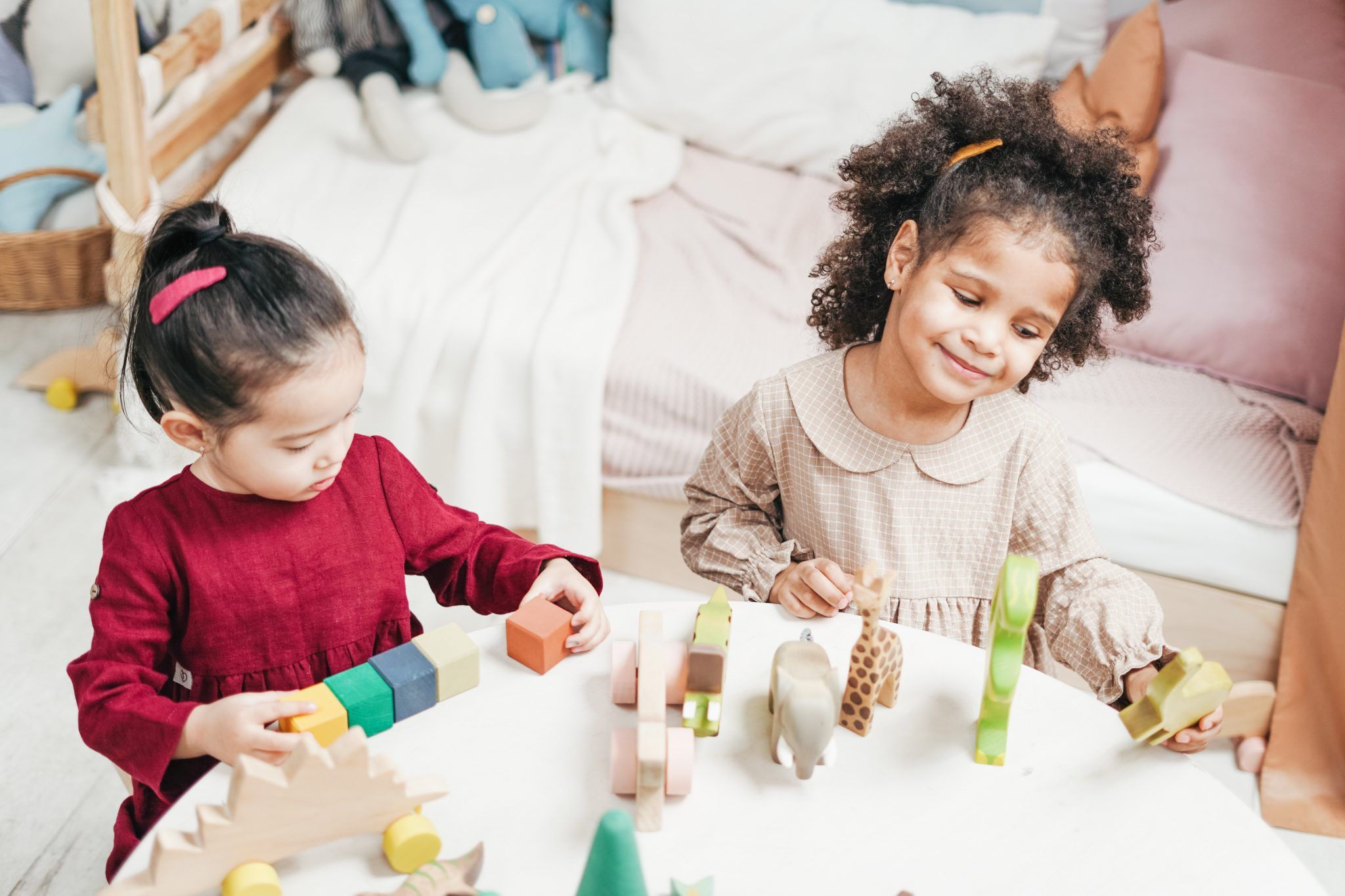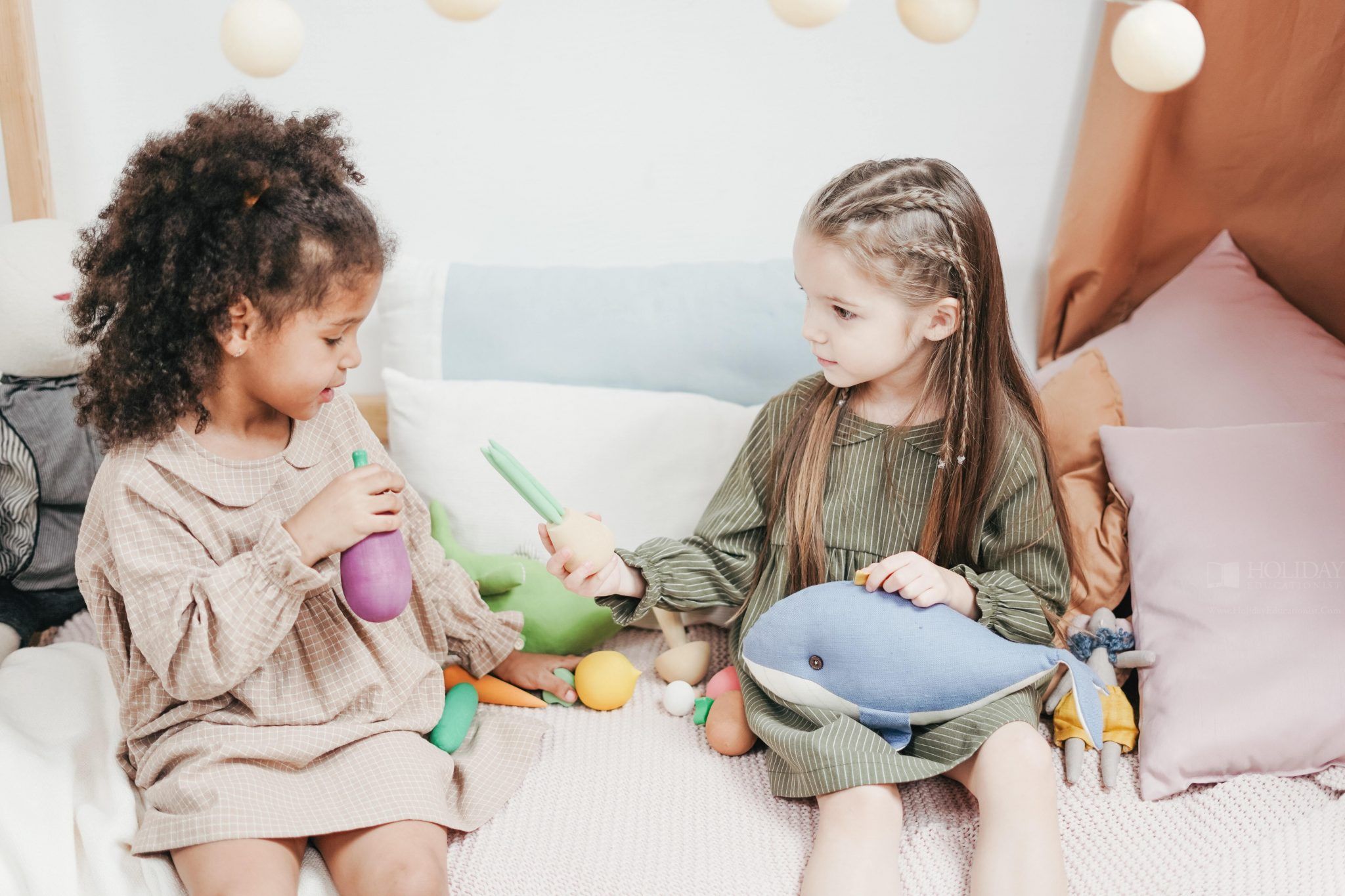Teaching Kids the Value of Sharing
 It is extremely important for us to teach children the value of sharing.
Once your child starts having playdates and visiting child care, preschool or kindergarten, he has to share with others.
Children learn plenty from just watching what their parents do. Once you model good sharing and turn-taking in your family, it gives your children an excellent example to follow. Thus inculcating the value of sharing.
It is extremely important for us to teach children the value of sharing.
Once your child starts having playdates and visiting child care, preschool or kindergarten, he has to share with others.
Children learn plenty from just watching what their parents do. Once you model good sharing and turn-taking in your family, it gives your children an excellent example to follow. Thus inculcating the value of sharing.

Children also need opportunities to understand the value of sharing and practice it. Here are some ways to encourage sharing in everyday life:
Point out good sharing in others. You’ll be able to say things like, ‘Your friend was sharing her toys very well. That was very nice of her’. When you see your child trying to share or alternate, ensure you give much praise and a spotlight. As an example, ‘I liked the way you let Tom play together with your train. Great sharing!’

Play games together with your child that involve sharing and turn-taking. This inculcates the true essence of the value of sharing. Talk your child through the steps, saying things like, ‘Now it’s my communication build the tower, then it’s your turn. You share the red blocks with me, and I’ll share the green blocks with you’. Talk to your child about sharing before they have playdates with other children. for instance, you’ll say, ‘When Georgia comes over, you’ll share a number of your toys. Why don’t we ask her what she wants to play with?’ you’ll also sit down with your child about sharing before they start child care or preschool. Although it’s important to share, it’s OK for kids to possess some toys that they keep only for themselves. It’s an honest idea to place away from these special toys when other children come to play at your house. This will facilitate you to avoid problems with sharing.
When your child won’t share. Sharing may be a challenge, especially initially. most kids need practice and support to develop this skill. If your child doesn’t share well, you’ll try practicing together reception and talking about what you’re doing. for instance, ‘Let’s share this banana. you’ll be able to have some, and that I can have some’. This way they understand the value of sharing.
There’s no reason to avoid playdates if your child has trouble sharing. Instead, use them as an opportunity to assist your child’s practice. You’ll stay nearby and encourage them so they don’t forget to share. When they do try and share, you’ll say exactly that they did well and the way proud you’re.
Consequences for not sharing.
For children over three years, it can help to make consequences for not sharing.
When you use consequences for not sharing, it’s important that the implications relate to the thing that’s being shared – or not shared! for instance, if children aren’t sharing a toy train, you would possibly take the train far away from both of them for a brief period of your time. Neither child can play with the train, therefore the consequence feels identical for both of them. This could also get children considering what they have to try and do if they require to play with the toy together.
When you think they’re ready, you’ll be able to give the toy back so children get another chance to point out they’ll share.
Understanding of The Value of Sharing at Different Ages.
Toddlers.
Your two-year-old probably doesn’t have an understanding of the value of sharing. In general, young toddlers believe they’re the center of the planet in which everything belongs to them. For sharing, children also must be ready to manage their emotions, and toddlers are only commencing to find out how to try to do this.
So consequences for not sharing probably won’t help your toddler learn to share. Instead, encouragement and practice will work better.
When another child has something your toddler really wants, your child will probably find it very hard to attend their turn. They might even try and get the toy any way they will be able to, or have a tantrum if they can’t get what they want.

Preschoolers.
By age three, many children are commencing to understand the value of sharing. As an example, your preschooler will probably understand that sharing equally is that the ‘fair’ thing to try and do, but he still won’t be keen to place sharing into action when it involves giving something up. They may also still be impatient when waiting for their turn.
You can build your preschooler’s sharing skills by awaiting and praising good turn-taking, encouraging fairness, and explaining about sharing. Simple activities that involve sharing and taking turns like kicking soccer goals or shooting basketball hoops may be helpful.
If there’s trouble, it can help to remind your preschooler how they’d feel if someone took their toy, or didn’t let them have a turn. reprehension about other people’s feelings will help them understand things from someone else’s point of view – this is often also a crucial skill in making friends.
It’s a decent idea to be realistic with a few preschooler’s abilities to share. At this age, most kids are still learning and might find it hard to grasp other people’s thoughts and emotions.
School-age children.
By the time most kids start school. They fully understand the value of sharing. Moreover, they’re starting to understand that people have feelings too. This suggests they’re more likely to share and alternate, although it would still be hard for them to share a favorite toy or game.
School-age children even have a powerful sense of fairness and won’t want to share a toy or play a game if they think they won’t get a good go. It’d help to test the principles of the games your child is playing, and reassure your child that they’ll all get a turn.
At this age, your child is going to be rather more patient and tolerant than they want to be. They’ll even be keen to try to do the proper thing and may form more complex relationships, which really helps with the thought of sharing. Your child can get many practice sharing in class too – as an example, sharing pencils at his desk or sharing paints in art.